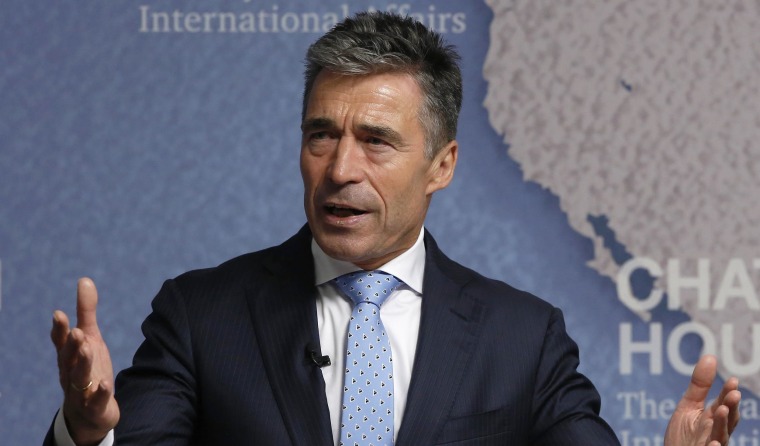BRUSSELS - Russia has resumed a military buildup near Ukraine, NATO Secretary General Anders Fogh Rasmussen said Thursday, calling it "a very regrettable step backward."
"I can confirm that we now see a new Russian military buildup — at least a few thousand more Russian troops deployed to the Ukrainian border, and we see troop maneuvers in the neighborhood of Ukraine," Rassmussen said in London.
"If they're deployed to seal the border and stop the flow of weapons and fighters that would be a positive step. But that's not what we're seeing."
Sign up for breaking news alerts from NBC News
Instead, the NATO chief said, Russia appears bent on using its military to intimidate Ukraine further.
"I consider this a very regrettable step backwards and it seems that Russia keeps the option to intervene further," Rasmussen said. "So the international community would have to respond firmly if Russia were to intervene further. That would imply deeper sanctions which would have a negative impact on Russia."
NATO estimated at one point there were up to 40,000 Russian forces deployed near the border with Ukraine, but reported last month that many of the soldiers and their equipment had been pulled back.
In his speech, Rasmussen said the U.S.-led NATO alliance is at a turning point.
"The world that we helped to build after the end of the Cold War is being challenged in different ways and from different directions," he told his audience at Chatham House.
"To our east, Russia's aggression against Ukraine is an attempt to rewrite international rules and recreate a sphere of influence. At the same time, to our south, we see states or extreme groups using violence to assert their power. And overall, we see threats old and new, from piracy to terrorism to cyber-attacks."
